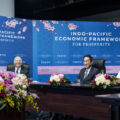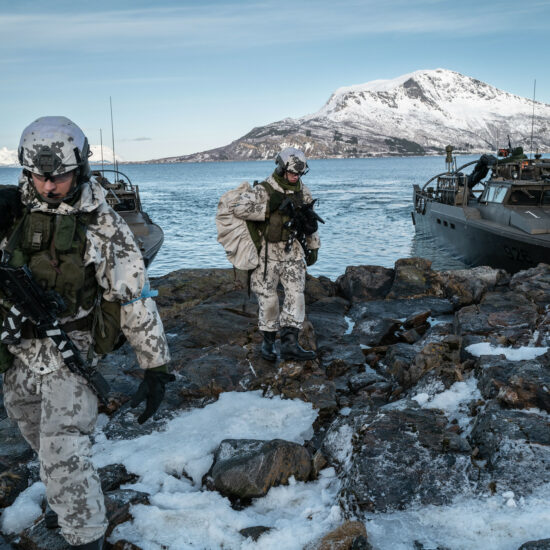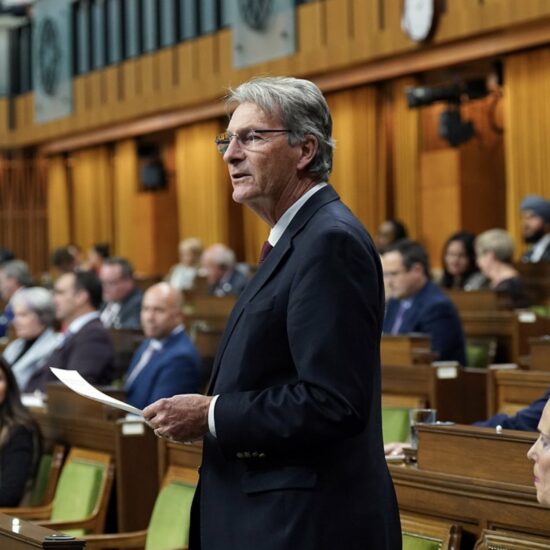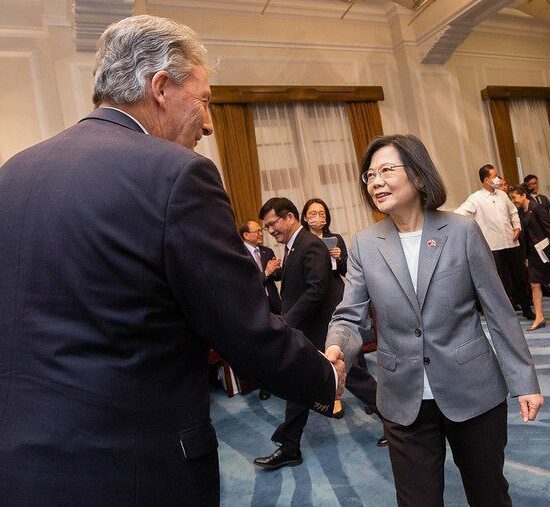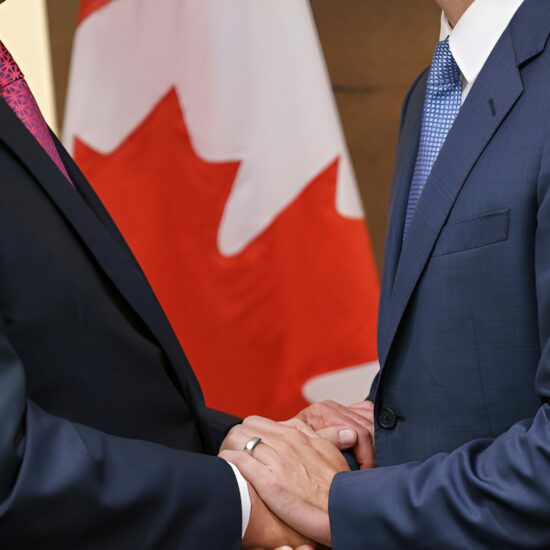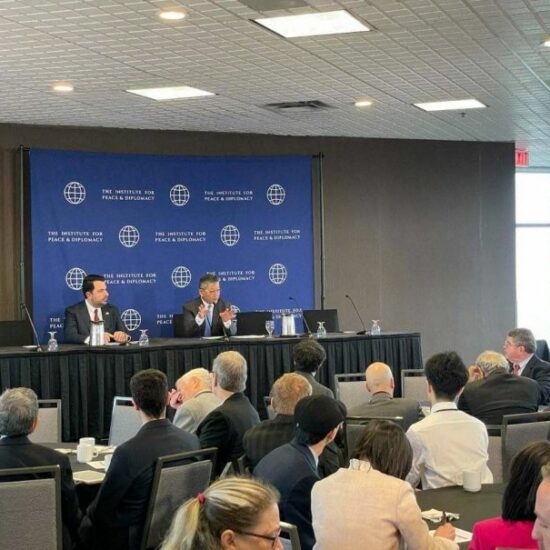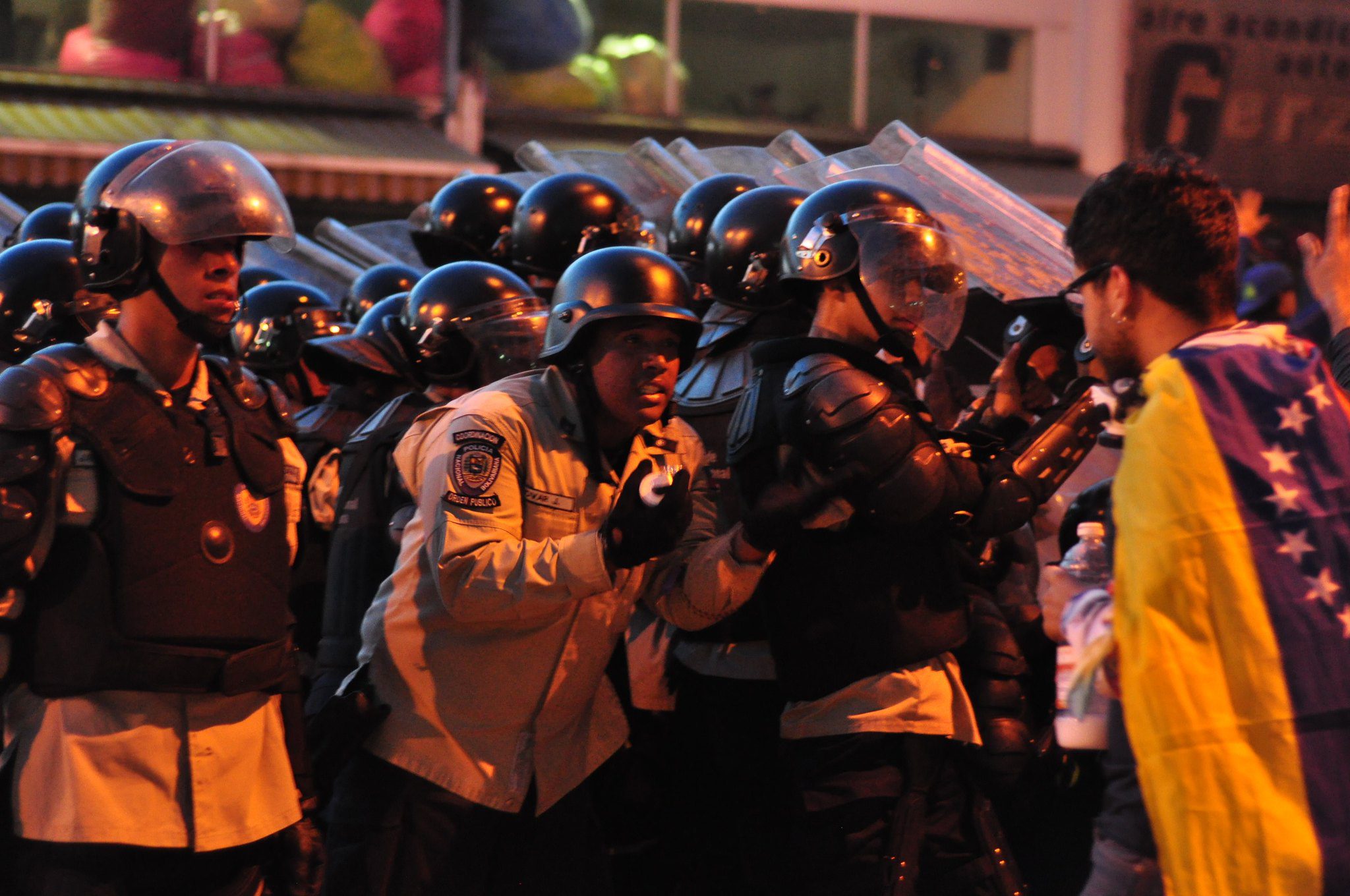
Image credit: andresAzp
By Amadeus Narbutt
This article was originally published in the Canadian Dimension.
The crisis in Venezuela has put the entire Latin American region on alert. The once booming petrostate was led by the leftist Hugo Chávez during a time known as the ‘pink tide’, when left-wing governments were elected on the back of anti-neoliberal protests across the continent in the 1990s and 2000s. While the pink tide receded in places like Ecuador and Brazil by the 2010s, it held firm in Venezuela, eventually culminating in a stagnant pool of corruption and authoritarianism under Chávez’s handpicked successor Nicolas Maduro.
Chávez’s modernization of Venezuela and the construction of a radically distributive welfare state was built on the back of Venezuela’s oil industry, which was responsible for 98 percent of export earnings and almost 50 percent of its gross domestic product (GDP). When oil prices dropped more than 70 percent between 2014 and 2016, Venezuela’s economy collapsed. Mired in falling oil production, shrinking GDP, soaring debt, hyperinflation, and growing autocracy, Venezuela now represents the largest humanitarian crisis in the Western Hemisphere. When Maduro was re-elected in the summer of 2018 in a vote widely perceived to be fraudulent, Juan Guaidó, the President of the National Assembly, declared himself interim President of Venezuela with the backing of the US.
Canada has involved itself in the crisis mainly through its co-founding and participation in the Lima Group. In doing so, Canada has touted its ‘value-oriented foreign policy’ and commitments to safeguarding and promoting democracy and human rights abroad. The purpose of the Lima Group is to support Guaidó’s aim of removing Maduro and to guarantee a peaceful transition to democracy in Venezuela “without the use of force”. However, the continued use and expansion of sanctions against Venezuela by the US has directly contributed to the suffering and degradation of the conditions of the Venezuelan people, and is considered illegal under international law.
Maduro’s administration is guilty of anti-democratic measures and human rights abuses, and he should be held responsible for his actions through democratic means and the restoration of the judicial process in Venezuela. Yet the actions of Canada, in coordination with the Lima Group, do not correspond to the purported aims of peaceful and diplomatic transition.
The Lima Group and Canada have acted in lockstep with the US and Juan Guaidó. Guaidó’s opposition have weaponized the economic misfortune of Venezuela with American-backed force as a way of furthering the country’s economic misery in order to foment an uprising against Maduro. As a member of the Lima Group, Canada is complicit in this exploitation of human suffering for the purposes of regime change, despite its lofty rhetoric about human rights and the protection of democracy.
Meanwhile, US efforts have recently expanded to a full economic embargo of Venezuela. While Canada has not yet pursued the same policy, Minister of Foreign Affairs Chrystia Freeland has stated that Canada was ‘examining’ a move to freeze all Venezuelan government assets.
Jean Galbraith of the University of Pennsylvania Faculty of Law describes the precise nature of the US sanctions against Venezuela through an examination of Executive Order 13808, outlining the particular targeting of financing for the Venezuelan government and its state-owned oil company Petroleos de Venezuela S. A. (PdVSA). Less than two weeks after enacting these measures, on September 5, 2017, the US and Canada formed an ‘association’ in order for the Canadian government to have the legal authority to implement corresponding sanctions through the Special Economic Measures Act, which stipulates that Canada may apply sanctions when “an international organization of states or association of states, of which Canada is a member, has made a decision or a recommendation or adopted a resolution calling on its members to take economic measures against a foreign state”. Unable to find unanimity in other forums like the Organization of American States (OAS), the US and Canada formed their own temporary group for the specific purpose of justifying these sanctions.
The outcomes of these sanctions have been nothing short of disastrous. Former UN Rapporteur Alfred de Zayas released a devastating report on the humanitarian situation in Venezuela, in which he criticized the role of the military-industrial complex, transnational corporations, and international financial interests in pursuing unilateral economic warfare against Venezuela, with especially dire consequences for the poor. The results of these sanctions have been so severe that de Zayas recommended invoking Article 96 of the United Nations (UN) Charter to request an opinion on the case from the International Court of Justice (ICJ) as to whether the sanctions constitute crimes against humanity.
Economists Mark Weisbrot and Jeffrey Sachs of the Center for Economic and Policy Research (CEPR) and Columbia University, respectively, echo these concerns. They have highlighted the particularly devastating impacts the sanctions have had on health and human well being in Venezuela, concluding that they have resulted in an estimated 40,000 deaths from 2017-2018. Further, scholarly work by the Peterson Institute for International Economicsattributes only a 34 percent success rate to sanctions in diplomatic efforts, revealing the dubious role they play in successfully advancing peace.
The purpose of these sanctions is clear: to weaponize the suffering of Venezuela’s working class in order to further delegitimize the Maduro government and encourage a revolt of disaffected citizens and military personnel. The sanctions have also obstructed Venezuela’s access to the international financial system, which gives the country no option to restructure its debt or remedy the economic crisis and alleviate rising poverty and food insecurity. The utilization of important financial instruments has become nearly impossible as a result of the sanctions, and the leaders of the opposition have even attempted to block the Maduro government from accessing its own gold reserves abroad.
If Canada was truly interested in the alleviation of poverty and the promotion of human rights in Venezuela, its goal should be the restoration of effective governance, not the antagonistic diffusion of suffering through financial and economic warfare.
Canada’s motivations in Venezuela are likely more self-interested than the ‘value-oriented’ rhetoric the Trudeau government employs. For instance, global financial actors have an interest in seeing the end to Maduro’s regime due to its continued policy of nationalization of the natural resources sector. When Chávez nationalized the gold mining industry in Venezuela, it was publicly reported as a threat to Canadian interests. Now, the Canadian mining industry has billions of dollars worth of interest in seeing it privatized.
Examples of the struggle between Venezuelan nationalization and Canadian corporate interests can be seen in court cases such as Vanessa Ventures v. Bolivarian Republic of Venezuela and Gold Reserves Inc. v. Bolivarian Republic of Venezuela, where Canadian corporations sued the Venezuelan government for hundreds of millions of dollars in response to asset seizure. Further evidence of global capital’s role in the push for regime change in Venezuela can be seen in the Inter-American Development Bank (IDB), which has confidential plans for a $58 billion recovery fund for Venezuela, but only after regime change occurs. Former chief economist and recent consultant for IDB, Richard Hausmann, has been designated by Juan Guaidó as his coordinator of economic advisors. Hausmann has previously been named as one of the “IESA Boys”, a group of neoliberal economists from the Instituto de Estudios Superiores de Administración, a private university in Caracas. The nickname harkens back to the infamous Chicago Boys, who played a leading role in orchestrating the US-backed coup against democratically elected socialist Salvador Allende in Chile in 1973. Last year, Hausmann published an article entitled “D-Day Venezuela”, pleading for military intervention in the country and documenting a vision of neoliberal restructuring.
Should Canada wish to conduct foreign policy in a manner that is consistent with its rhetoric, it must commit to genuine humanitarian actions that do not restrict the government’s ability to provide aid to its population. The lifting of harmful sanctions and the economic embargo should be a top priority to ensure that the Venezuelan people are no longer suffocated by financial restrictions placed on the Maduro government. Further, the involvement of corporate interests and figures like Hausmann, with deep ties to the opposition forces led by Guaidó, should be denounced as predatory and opportunist. Canada and the Lima Group’s support for Norway-backed peace talks should continue, and any further threats of military action by the US must be categorically condemned.
Canada, if it purports to stand for democracy and human rights abroad, would do well to understand that further escalation of the crisis in Venezuela — whether by economic warfare, the diplomatic recognition of rival factions, or threats of military force — will only lead to the further degradation of human rights. Venezuela is a deeply divided country. Though Maduro is hated by many, he still has a loyal base of support. Furthering suffering by the Venezuelan population due to harsh sanctions will not make these political divisions disappear. The solution must be a negotiated settlement among different political factions that respect democratic mandates, human rights, and sovereignty.
Amadeus Narbutt is a doctoral student in Political Science at York University and a Policy Analyst at the Institute for Peace & Diplomacy. He studies the political economy of Latin America, American foreign policy, and neoliberalism. Follow him on Twitter @amadeusnarbutt.

